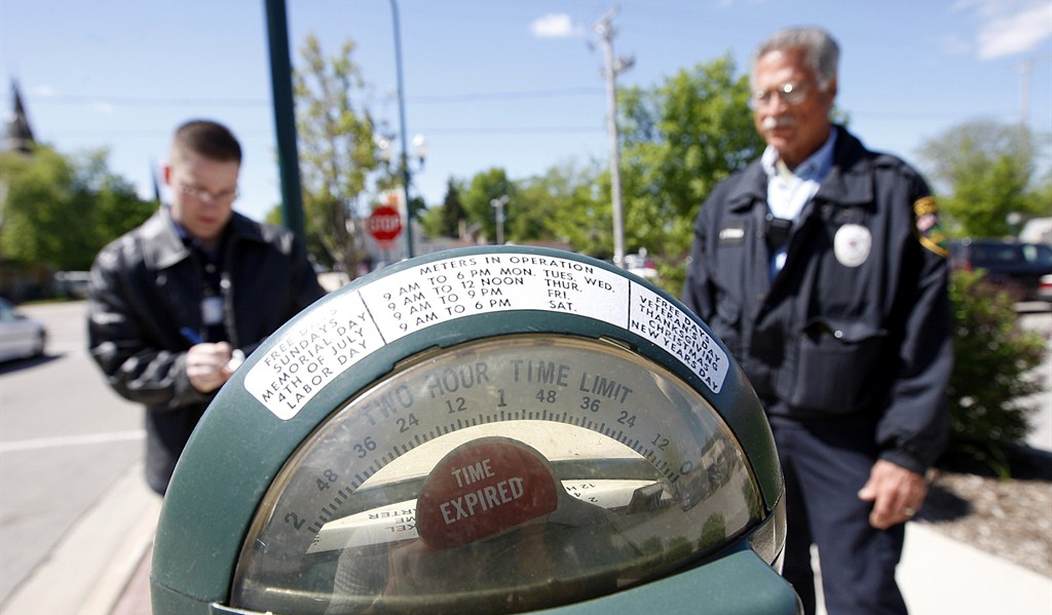Top News
Victory? San Fran to stop ticketing stolen vehicles

It’s not exactly news that things have not been going well in San Francisco lately, to put it mildly. But along with all of the other issues plaguing the City by the Bay, as with other major urban centers, carjackings and automobile thefts have been rising steadily. Now we’re learning that there’s another wrinkle in this story, though. Imagine how distressing it must be to come out of your house and find that your vehicle has been taken. Then, later that week, you receive the surprising good news that your car has been located. You go to retrieve it, only to find that you’ve been given one or more parking tickets because the thieves left it parked illegally. Ridiculous, you say? It certainly should be. But it’s happened to hundreds of people in San Francisco and some people wind up paying the tickets rather than going through a protracted fight in court. Now Mayor London Breed is ordering a stop to the practice. But she doesn’t seem to be sure how to implement the order. (KTVU San Francisco)
San Francisco Mayor London Breed is calling on city agencies to work to stop victims of car theft from getting tickets on their stolen cars.
The San Francisco Chronicle reports more than 400 stolen cars received parking citations between May 1 and Sept. 17.
Some of those cars had multiple tickets.
The mayor is calling on police and the SFMTA to identify a solution to automatically spot a stolen vehicle before issuing a ticket.
Is it really that difficult to figure out if a car is stolen before issuing a ticket? Apparently, they think it is in San Francisco. They are discussing a method using license plate readers and other law enforcement surveillance technology to handle the task. But the municipal government is so paranoid about the police using cameras that any changes to the legal code involving such technology must undergo multiple reviews by various boards and privacy organizations before any changes can be made.
Maybe it’s just me, but that sounds a bit like relying on quantum computing to catch a mouse in your cupboard. Assume that a car has been stolen and ditched on the street somewhere and it’s either a no parking zone or parking is time limited. In order for the police to issue a violation, someone would have to actually see the vehicle to issue a ticket, right? And presumably the vehicle still has license plates on it or they wouldn’t know who to give the ticket to. Stay with me here, because this may be too complicated for anyone from the San Fran City Council to follow.
Now if the cops are looking at the car and getting ready to write a ticket, couldn’t they call in the license plate? In fact, before they could finish the process, they would have to do that because people don’t display their names and addresses on their plates. Would it really be all that complicated to add one more step and have the cops ask the dispatcher, ‘Oh, by the way. This car hasn’t been reported stolen, has it?’
If the answer is no, you issue the ticket. If the answer is yes, you put away the ticket book and inform the owner so they can retrieve the vehicle after you’re done checking it for evidence so you can investigate the crime. Based on these assumptions and the report linked above, this means that there were hundreds of stolen cars in San Francisco this year that were looked at by the cops without any of them ever figuring out that they were in contact with evidence from a previous crime far more serious than a parking violation. The San Francisco Municipal Transportation Agency is responsible for collecting payments for parking tickets. But even if the city uses some sort of “meter maids” (as they used to be called) to issue the tickets, they surely could also be trained to do a quick check to see if it’s a stolen car, couldn’t they?
It just seems as if this shouldn’t be such a heavy lift. And given the number of stolen cars in the city every month, some smart, low-cost solutions should be found to improve the system. We’re talking about parking tickets and abandoned cars here, not a serial killer. We shouldn’t need to call in Hercule Poirot to figure it out.
Read the full article here

-
Uncategorized3 days ago
The Surge of Crypto Slots: A New Period in Online Pc Gaming
-
Uncategorized3 days ago
Kəşf Etmək Binance Coin Kazino Saytları Dünyasını
-
Uncategorized3 days ago
The Increase of Dogecoin Casino Sites: An Extensive Introduction
-
Uncategorized3 days ago
High Roller Online Casinos: Inside the Globe of Elite Betting









